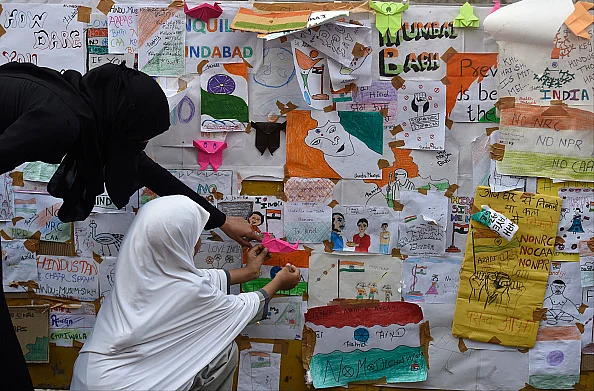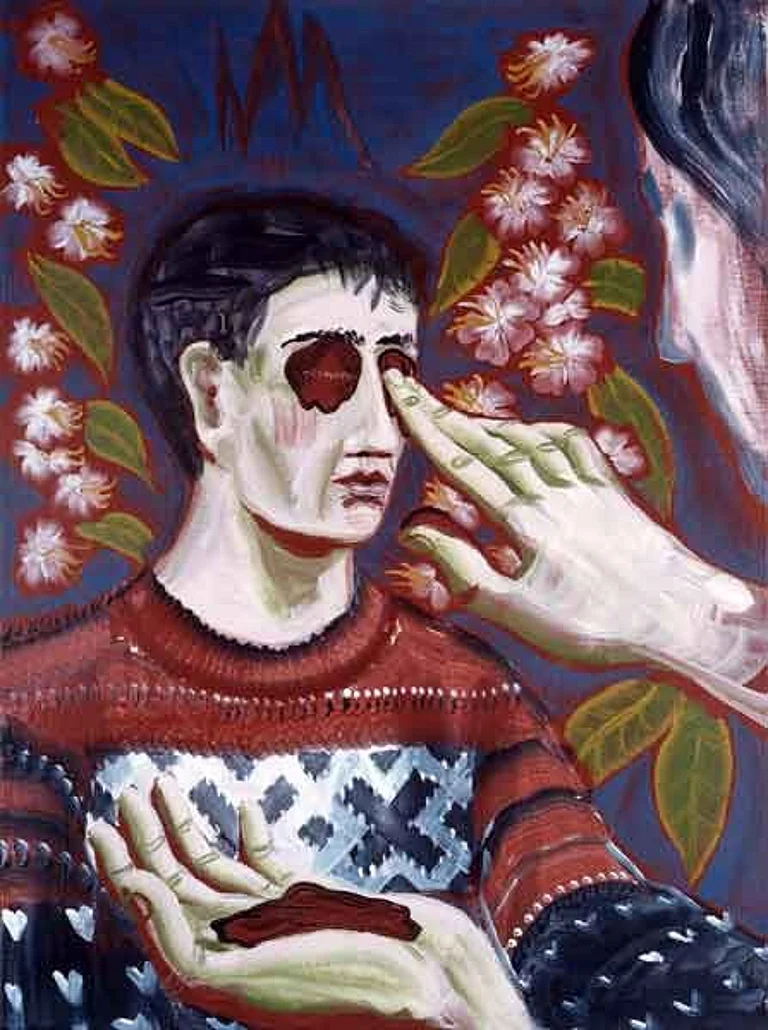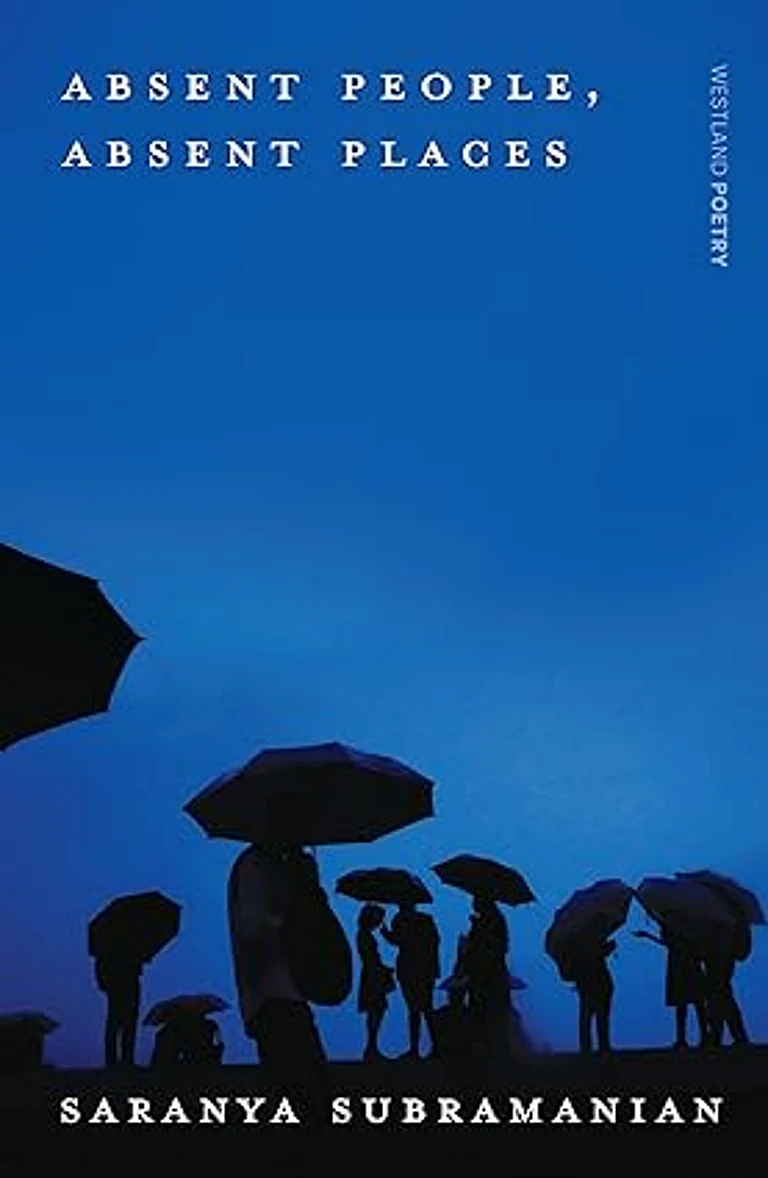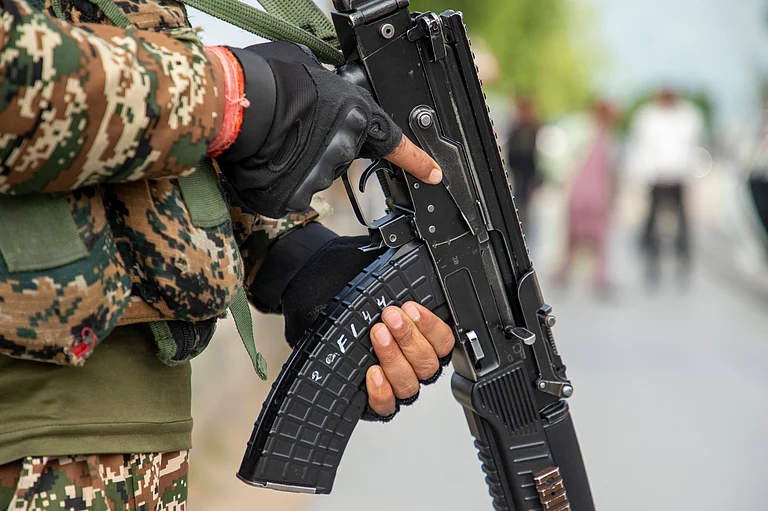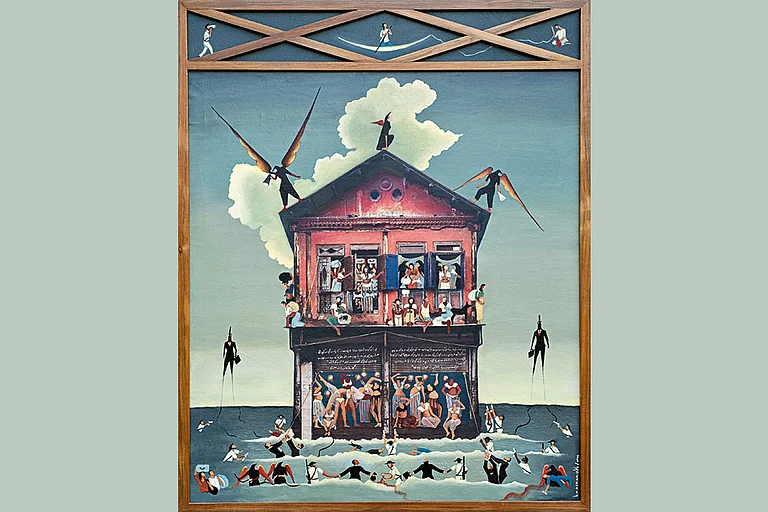In a review of Chicago-based poet and translator Daniel Borzutzky’s 2021 poetry collection Written After a Massacre in the Year 2018 (Coffee House Press), the poetry editor at the New Yorker, Hannah Aizenman invoked the German playwright Bertolt Brecht for something that he seems most famous for nowadays, in the age of social media—his epigram, which goes as follows:
In the dark times
Will there also be singing?
Yes, there will be singing.
About the dark times.
Aizenman writes that people share it “as a token of hope, a testament to the human spirit’s eternal resilience. But it also articulates the stultifying effects of [the] crisis on the imagination. … [Brecht] was less interested in song as a source of relief than in its power to awaken an audience—and provoke a reckoning.”
Two takeaways from what Aizenman reflects. First, in trying times, imagination fails everyone, including—and surely—artists, too. Second, regardless of the oppression that comes in their way, artists must create artforms—to register their dissent, to warn people of an eventuality that’s lost on them, to give a ray of hope. That’s precisely what Hamraaz’s poetry collection, Yes, There Will Be Singing (Context, an imprint of Westland)—a perfect blow to the state-sponsored oppression—does.
The word Hamraaz’s origin is Persian. It means a friend, companion, a secret holder. Why would someone choose this pseudonym, I wondered, for, of course, given what Hamraaz explores in the collection is not a secret anymore. But as I sifted through this collection, it was obvious to note the signs of grief peppered throughout, making me conclude that who else do you need to confide in you or whom do you turn to unburden yourself and speak the unspeakable reality but a friend.
Divided into nine sections, the structure enables the poems in this collection to deftly encapsulate the paranoia of our recent past and present times. Be it the anti-CAA-NRC protests in Shaheen Bagh, Jantar Mantar, and India Gate or be it the successive waves of the coronavirus pandemic, each recollection sends a chill down one’s spine.
Sample the maiden poem—In the Beginning. Its end powerfully conveys how the everyday, harmless greeting Jai Shree Ram has now metastasised into a clarion call for violence, an act of vocalising one’s stand, a commitment towards a political party in particular and what they believe in. Then, 20 December: Rising does what any form of art does. Dedicated to Chandrashekhar Azad, the co-founder and president of the Bhim Army, its culmination reminds those intoxicated by power “that neither police nor army—/ nor the devil himself // can turn back the sea / when it rises.” This makes this poem a confluence of hope, consolation, and warning. On the other hand, Beyond the Horizon reads like news—a duty any poem or any art form should perform when disseminators of news, in collusion with the state and corporates, decide to not serve the public they should.
Furthermore, there are some clever spin-offs in this collection that help demonstrate Hamraaz’s craft of balancing what must be said and what should readers be made to think about. Sample these: “We read of atrocities daily; no one is watching the watchmen— …” Then, this, “Let’s audit the PM: how much does he care?”
While there is an umpteen number of such poems, We Must Insist on Saying Unspeakable Things is an exacting response towards this phenomenon one observes when dissent is silenced and language gets hijacked, and, in turn, begins empowering the oppressor. In such a scenario, instead of employing a “measured language”, the author wants us to speak as-is for anything besides that would be, as they conclude, equivalent to telling lies. This reminded me of something I had observed in the Paris Review by Richard Wilbur: “One of the jobs of poetry is to make the unbearable bearable, not by falsehood but by clear, precise confrontation.”
Thus, from invoking the grief-stricken and helpless state of the people under the government’s neglect in the wake of the coronavirus pandemic to remembering the crackdown on activists, artists, and intellectuals who stood up for the ethos of this country to the farmers’ protest and everyday activism, Hamraaz chronicles an array of penultimate movements in the country’s history with empathy, rage, responsibility, and, above all, with love and care.
Through these poems, the poet not only dares to express but also encapsulates in their creation a language for fighting what seems an impossible—and most definitely—unequal fight. Therefore, Yes, There Will Be Singing is also an elegy, a reminder lest we forget.
Still, those unconvinced can try this: In Life of Galileo, Brecht writes, “Unhappy the land where heroes are needed.” Not only is Brecht’s choice of words clever and economical, but the timing of his work’s creation is also crucial. It was 1943. And Brecht was signalling a possibility that wasn’t far away from materialising. Which did. Eventually. And how did it happen? To neutralise universal brotherhood, Nazi Germany invented an idea to distinguish between Übermen (superior beings) and Üntermensch (inferior beings).
The charismatic leader had called for people to self-identify as heroes and partner with him in his attempt to sanitise the country and create an army of only Übermen, the pure, Aryan race. With this story, a falsehood, he managed to mobilise people, and, most importantly, kill Jews as the world watched, stunned in silence. In that deafening silence, which reverberates even today, Brecht’s words were screaming from the rooftops, provoking a reckoning, as Aizenman notes. Hamraaz isn’t doing anything different. The question, however, is whether you’re paying attention, acting or choosing to look away.
(Saurabh Sharma is a Delhi-based queer writer and freelance journalist)






